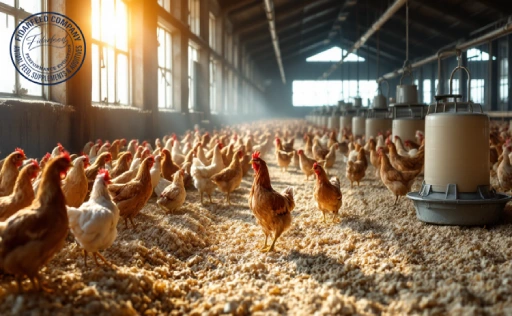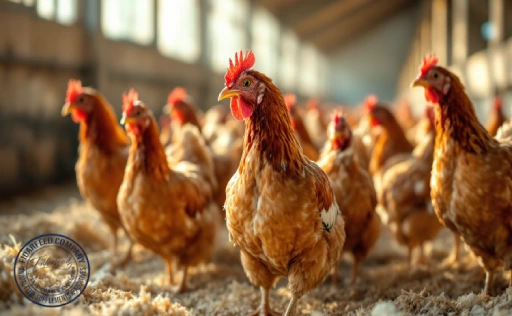What Is Stress in Pet Birds? Understanding the Signs
Stress in pet birds is a common yet often overlooked issue that can significantly impact their health and happiness. Birds, like humans, experience stress when faced with environmental changes, improper care, or emotional distress. Unlike dogs or cats, birds may not always display obvious signs of stress, making it crucial for pet owners and breeders to recognize subtle behavioral and physical indicators.
Common signs of stress in pet birds include excessive feather plucking, aggressive or withdrawn behavior, changes in vocalization (such as excessive screaming or sudden silence), loss of appetite, and repetitive movements like pacing or head-bobbing. Some birds may even develop stress-induced health problems, including weakened immune systems or digestive issues. By identifying these signs early, bird owners can take proactive steps to alleviate stress and improve their pet’s overall well-being.
Common Causes of Stress in Pet Birds
Several factors can contribute to stress in pet birds, ranging from environmental triggers to poor socialization. Understanding these causes is the first step in preventing stress-related issues.
- Sudden Changes in Environment; Moving to a new home, rearranging the cage setup, or frequent travel can be unsettling for birds.
- Lack of Mental Stimulation; Birds are highly intelligent creatures that require regular mental and physical engagement. A monotonous environment with limited toys and interaction can lead to boredom-induced stress.
- Poor Diet; Nutritional imbalances, such as deficiencies in essential vitamins and minerals, can cause physical discomfort and contribute to stress.
Learn more about: Probiotic Supplements
- Noise and Disturbances; Excessive loud noises, the presence of predators (such as cats or unfamiliar humans), and sudden movements can trigger fear and anxiety.
- Loneliness and Lack of Socialization; Many birds are social animals and can become stressed if left alone for long periods without interaction.
- Inappropriate Handling; Rough handling or forced interactions can make birds feel unsafe, leading to long-term stress and fear-based aggression.
How Stress Affects the Health and Behavior of Pet Birds
Stress doesn’t just affect a bird’s mood, it can have severe consequences on their physical and mental health. Chronic stress weakens the immune system, making birds more susceptible to infections, respiratory diseases, and digestive problems. It can also lead to behavioral issues like self-mutilation (feather plucking), aggression towards humans or other birds, and compulsive behaviors.
Learn more about: Want a Healthy Pet Bird? Try Probiotics
Long-term stress may even shorten a bird’s lifespan. Birds under constant stress may experience hormonal imbalances, leading to reproductive issues or abnormal molting patterns. By understanding these risks, pet bird owners can take action to create a more stable and supportive environment for their feathered companions.
Practical Ways to Prevent Stress in Pet Birds
Preventing stress in pet birds involves a combination of proper care, a comfortable environment, and regular social interaction. Here are some effective strategies:
- Provide a Safe and Comfortable Habitat: Ensure your bird’s cage is spacious, well-ventilated, and placed in a quiet, stable location away from excessive noise and disturbances.
- Enrich Their Environment: Introduce a variety of toys, perches, and puzzles to keep your bird engaged and mentally stimulated.
- Maintain a Balanced Diet: Feed a nutritionally complete diet that includes fresh fruits, vegetables, high-quality bird feed, and supplements as needed.
Learn more about: Probiotic Caged Birds: The Key to a Healthier Companion
- Establish a Routine: Birds thrive on consistency. Maintaining a predictable schedule for feeding, playtime, and sleep can help reduce anxiety.
- Encourage Social Interaction: If you own a social species, provide regular human interaction or consider getting a companion bird.
- Avoid Overhandling or Forced Training: Allow your bird to build trust at its own pace and use positive reinforcement to encourage bonding.
Effective Treatment Options for Stressed Pet Birds
If a bird is already experiencing stress, there are several ways to help them recover:
- Identify and Remove Stress Triggers: Observe your bird’s behavior and make necessary changes, such as relocating their cage to a quieter spot or adjusting their diet.
- Use Calming Techniques: Playing soft music, providing a dark, quiet space for rest, or introducing soothing activities like foraging games can help reduce stress levels.
Learn more about: Beginner’s Guide to Budgie Care: Keep Your Pet Bird Healthy and Happy
- Consider Natural Remedies: Herbal supplements such as chamomile or lavender (under veterinary guidance) may help calm anxious birds.
- Behavioral Training: Gradual desensitization to stressful stimuli and positive reinforcement can help a bird build confidence and reduce fear.
When to Seek Professional Help for a Stressed Pet Bird
While many stress-related issues can be managed at home, some cases require professional intervention. If your bird exhibits severe symptoms such as drastic weight loss, self-mutilation, or signs of illness (e.g., labored breathing, lethargy), consult an avian veterinarian immediately.
Learn more about: Creating the Perfect Habitat for Breeding Pet Birds
A vet can assess the bird’s health, rule out underlying medical conditions, and recommend appropriate treatments or behavioral interventions.
Final Thoughts: Ensuring a Happy, Stress-Free Life for Your Pet Bird
Creating a stress-free life for your pet bird requires patience, understanding, and a commitment to proper care. By recognizing stress triggers, providing a stimulating and secure environment, and addressing issues promptly, you can help your bird lead a healthy, happy life.
Have you ever dealt with a stressed pet bird? Share your experiences and tips in the comments below, we’d love to hear from you!









